Water is pooling in ventilator fan due to condensation
S Langedijk
last year
Featured Answer
Sort by:Oldest
Comments (7)
Related Discussions
Difference between Inline versus Intermittent ventilation fans?
Comments (4)Both brands are fine. If you go with an inline fan, you can usually get higher CFM and have it be virtually silent due to the "remote" nature of the inline fan. With your bath having moisture problems, two grills feeding a single inline or two individual fixed fans may be better than one. Depends on your bath layout. Consider putting the fan on a timed fan/light switch. Turn the light switch on and the light and the fan turn on. Finish showering and you turn the light switch off. The light turns off but the fan runs for a predetermined time to aid in additional moisture removal, then the fan turns off. Pay close attention to duct lengths and turns in the duct. The CFM-rating for a fan can be drastically reduced with excessive duct length, bends, any kinks, or for non-smooth flex duct. For a problematic bathroom I'd recommend an inline fan....See Morefan not turning due to ice
Comments (5)The fan motor should have overload protection that would come into play in a freeze-up situation. My sister and bro-in-law had this happen during a recent wet/freeze weather situation ... along with an all-day power failure. Water drips off their roof where the condenser is installed, which isn't so much a problem except during a rainy freeze. That doesn't ordinarily happen but as we all know the current winter season is a little outside the ordinary. Anyway, there was a power failure in the morning several weeks ago that lasted into the early evening and temps were at freezing through the day. The condenser fan had frozen-up (literally) during the outage so was jammed when power restored. She noticed the house wasn't getting warmed-up, investigated, noted the problem and broke the iced fan loose. I haven't heard that any subsequent problem has arisen....See MoreWater Condensation in Window AC Unit
Comments (4)To more directly answer the question, yes most window units are designed to collect condensate water and use it to help cool the condensor. The rear fan typically has what's called a "slinger ring" around its circumference, which serves to pick up the water and throw it against the condensor (rear) coil. There's typically a hose or two or a drain channel molded into the bottom of the unit, leading from a collection pan beneath the evaporator (inside) coil to a pan beneath the condensor coil. In cases of very high humidity, the condensor pan can overflow, resulting in water in the bottom of the unit, which will likely find its way out through any slots or holes in the bottom, around screws, from side vents, etc. If one is handy and up to the task, a small hole can be drilled into the bottom (CAREFULLY, in a strategic location AWAY from the compressor and condensor coil -- one does NOT want to put a hole in them!*), and a catch-pan attached beneath the unit with a hose to divert the flow away to a specific area, away from sidewalks, flower beds, etc. My grandfather did this with a unit that extended over their back porch, so the water would drain out to the yard instead of across the porch. (*One of my uncles attempted to drill a drain hole in a window unit many years ago, and put a hole in the compressor. I don't recall now if they had the compressor replaced, or trashed the entire unit for a new one.)...See MoreCondenser fan shroud
Comments (6)After taking the top cover off the unit to straighten the fins I realized there would NOT be enough room for a shroud. Interesingly enough, I awoke this morning with the sudden realization that the damage could very well have been caused by the incompetant installers of the company which I no longer do business with. They have managed to screw up several installations for me (all corrected) but I should have realized sooner that I should be doing business with somebody else, which I am now. I can't recall them working on the inside of that unit but if they ever did I'm sure they could possibly be responsible for the damage. We will see next spring after snow, ice and leaf debries take their turn....See MoreS Langedijk
last yearmike_home
last yearAustin Air Companie
last yearCharles Ross Homes
last yearCharles Ross Homes
last yearlast modified: last year
Related Stories
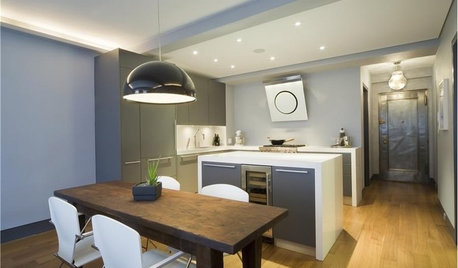
KITCHEN DESIGNHow to Choose the Right Hood Fan for Your Kitchen
Keep your kitchen clean and your home's air fresh by understanding all the options for ventilating via a hood fan
Full Story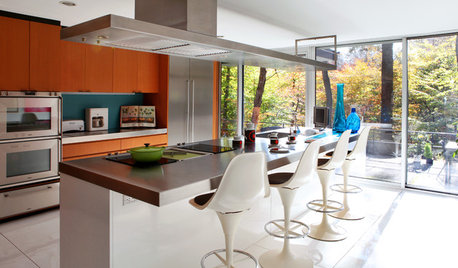
KITCHEN APPLIANCESLove to Cook? You Need a Fan. Find the Right Kind for You
Don't send budget dollars up in smoke when you need new kitchen ventilation. Here are 9 top types to consider
Full Story
HOUZZ TOURSMy Houzz: Dive Into a Cajun Country Home With an Indoor Pool
Drenched in sunshine from a massive glass atrium roof, this newly redesigned Louisiana home works swimmingly
Full Story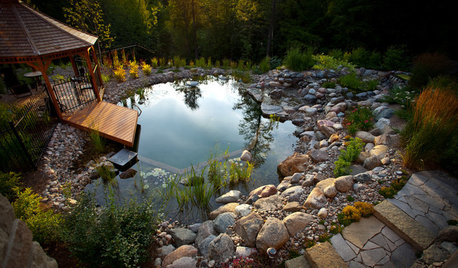
LANDSCAPE DESIGNNatural Swimming Pools: More Beauty, No Chemicals
Keep your skin and the environment healthy with a pool that cleans itself, naturally
Full Story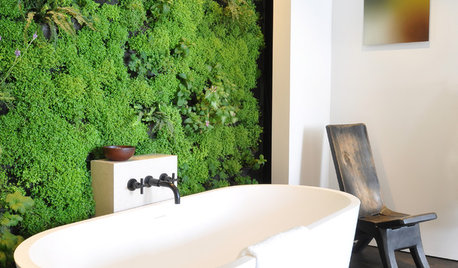
HEALTHY HOMEHow to Keep Water Vapor From Ruining Your House and Your Health
We help you find out when it’s happening, what it means and how to fix it
Full Story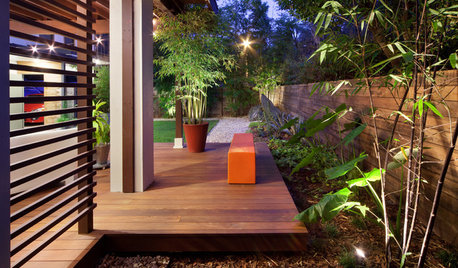
LIFEThe Top 5 Ways to Save Water at Home
Get on the fast track to preserving a valuable resource and saving money too with these smart, effective strategies
Full Story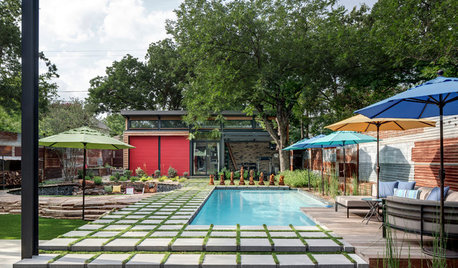
POOLSTrending Now: The 11 Most Popular New Pools on Houzz
A modern moat, submerged chaises and even a dry conversation pit have popped up in the latest most-popular pools
Full Story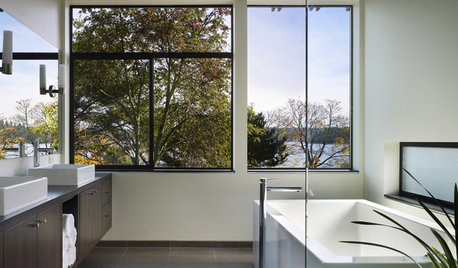
BATHROOM DESIGNGreen and Clean: Ventilate for a Healthy Bathroom
Ridding your bathroom of excess moisture is vital for indoor air quality. Here's how to do it best
Full Story
GREAT HOME PROJECTSHow to Switch to a Tankless Water Heater
New project for a new year: Swap your conventional heater for an energy-saving model — and don’t be fooled by misinformation
Full Story
SAVING WATER11 Ways to Save Water at Home
Whether you live in a drought-stricken area or just want to help preserve a precious resource, here are things you can do to use less water
Full Story


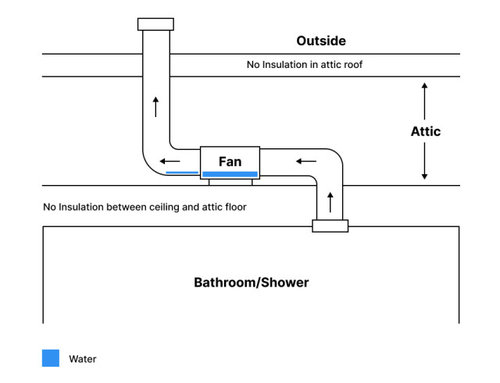


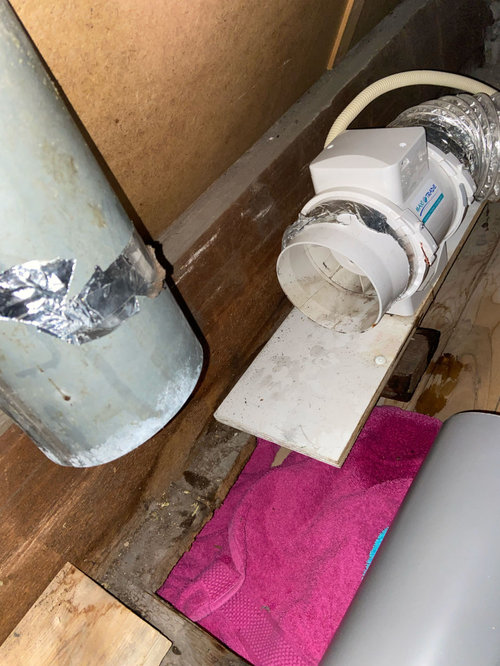
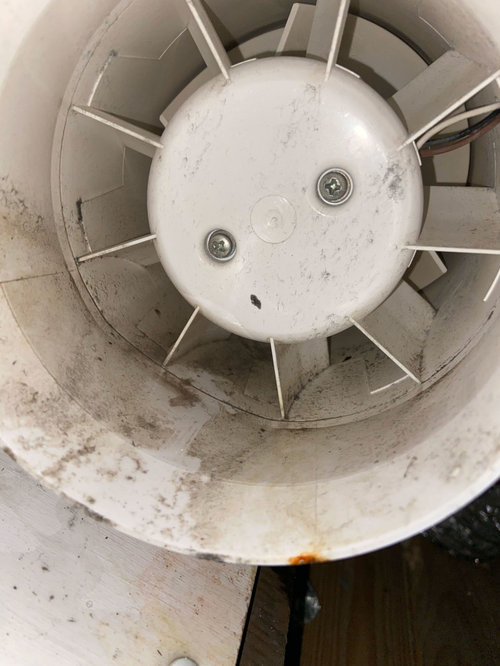
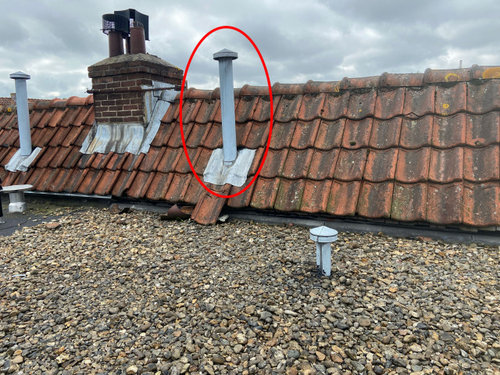

sktn77a